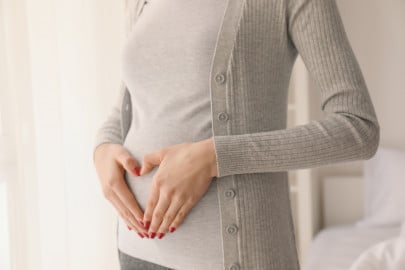Blog

What Is an Ectopic Pregnancy?
In the early stages of a normal pregnancy, a fertilized egg is released from the fallopian tubes into the uterus, where it becomes attached to the uterine lining. There, it will grow and develop throughout the remainder of the pregnancy.
However, sometimes the egg will implant itself outside the uterus, resulting in a rare complication known as an ectopic pregnancy. According to the American Pregnancy Association, ectopic pregnancies occur in approximately one out of every 50 pregnancies.
The most common type of ectopic pregnancy involves an egg attaching itself to a fallopian tube; this is known as a tubal pregnancy. Ectopic pregnancies can also occur when the egg attaches to the abdomen, the cervix, or an ovary. Because embryos can only grow and develop successfully when gestating within the uterus, ectopic pregnancies are not viable and, if left untreated, can result in fallopian tube rupture or fatal hemorrhaging.
Ectopic Pregnancy Signs and Symptoms
Some of the symptoms of an ectopic pregnancy, such as breast soreness and nausea, are indistinguishable from the symptoms of an early uterine pregnancy, which can make early detection difficult.
More serious warning signs and symptoms of an ectopic pregnancy include:
- Severe abdominal pain, especially if isolated to one side of the abdomen
- Severe pelvic pain
- Sharp pain in the shoulder
- Unusual vaginal bleeding
- Rectal discomfort
- Intense lightheadedness, dizziness, or fainting
If you’re experiencing any of these symptoms, it’s important to contact your doctor or seek emergency medical help immediately.
Causes and Risk Factors of Ectopic Pregnancy
Although the cause of an ectopic pregnancy isn’t always clear, there are some risk factors commonly associated with this type of complication, including:
- Sexually transmitted diseases (STDs) that cause inflammation in the fallopian tubes
- History of preexisting reproductive problems, including prior ectopic pregnancies
- Inflammation or scarring of the fallopian tubes from a previous condition or surgery
- Smoking
- Being over the age of 35
- Undergoing fertility treatments
- Conceiving while having an intrauterine device (IUD) in place
- Hormonal imbalances
While you may not be able to prevent an ectopic pregnancy from occurring, you can reduce your risk by discussing any risk factors with your doctor and maintaining a healthy lifestyle.
While you may not be able to prevent an ectopic pregnancy from occurring, you can reduce your risk by discussing any risk factors with your doctor and maintaining a healthy lifestyle.
Treatment and Future Outlook
If diagnosed early, ectopic pregnancies can be treated with medications such as methotrexate, which halts cell growth and allows the body to absorb the ectopic birth tissue. In advanced cases, laparoscopic surgery may be required to remove the tissue and repair any internal damage.
The ability to conceive and have healthy pregnancies after an ectopic pregnancy is largely dependent on whether the fallopian tubes have sustained physical damage. In cases where even just one fallopian tube is intact, egg fertilization can still occur as normal. In scenarios where both fallopian tubes are damaged or removed, fertility treatments such as in vitro fertilization (IVF) can still be used to achieve pregnancy.
Learn More
If you are concerned about ectopic pregnancy, contact Pacific Women’s OB/GYN Medical Group today.
Back to blog